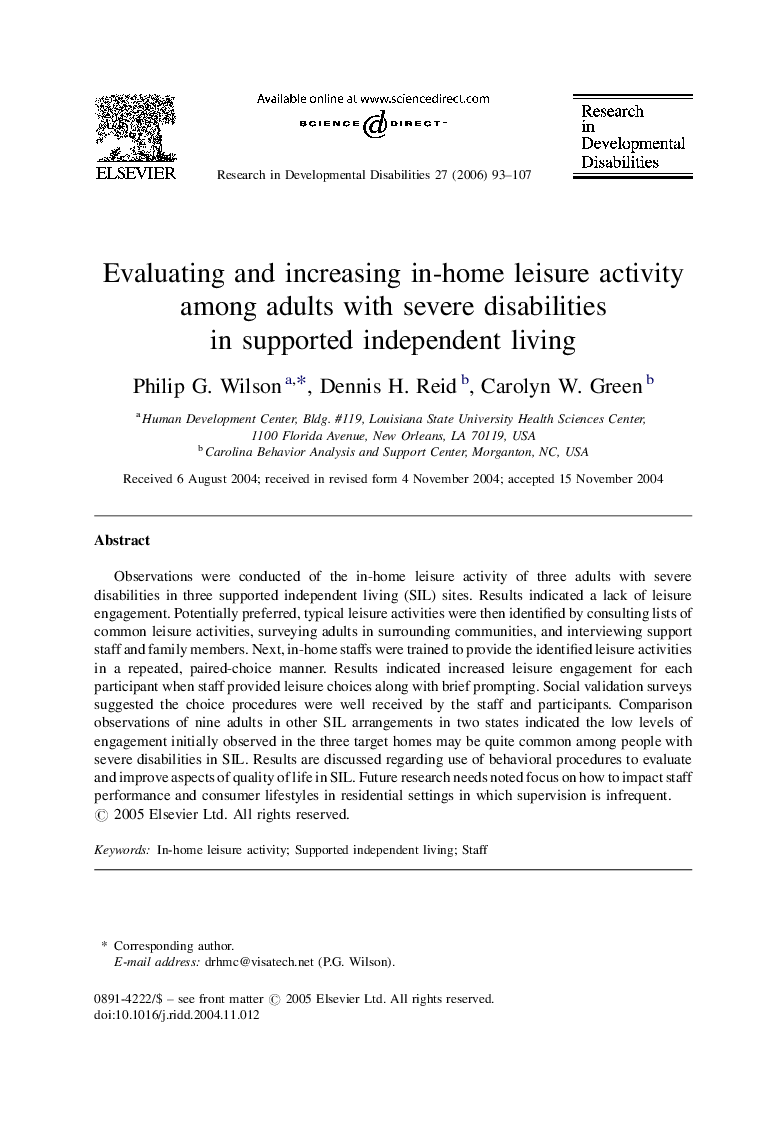| Article ID | Journal | Published Year | Pages | File Type |
|---|---|---|---|---|
| 372388 | Research in Developmental Disabilities | 2006 | 15 Pages |
Observations were conducted of the in-home leisure activity of three adults with severe disabilities in three supported independent living (SIL) sites. Results indicated a lack of leisure engagement. Potentially preferred, typical leisure activities were then identified by consulting lists of common leisure activities, surveying adults in surrounding communities, and interviewing support staff and family members. Next, in-home staffs were trained to provide the identified leisure activities in a repeated, paired-choice manner. Results indicated increased leisure engagement for each participant when staff provided leisure choices along with brief prompting. Social validation surveys suggested the choice procedures were well received by the staff and participants. Comparison observations of nine adults in other SIL arrangements in two states indicated the low levels of engagement initially observed in the three target homes may be quite common among people with severe disabilities in SIL. Results are discussed regarding use of behavioral procedures to evaluate and improve aspects of quality of life in SIL. Future research needs noted focus on how to impact staff performance and consumer lifestyles in residential settings in which supervision is infrequent.
